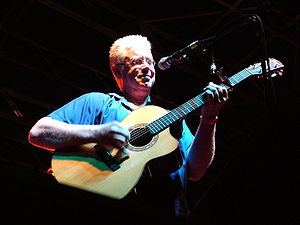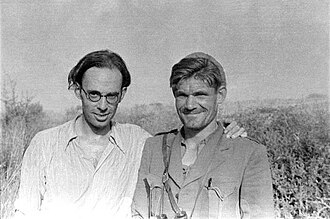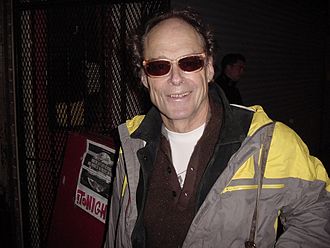Cockburn Last Name Origin, History, and Meaning
Where did the surname Cockburn come from? What does the surname Cockburn mean? Discover the history and meaning of the last name Cockburn and family migration on YourRoots Map.
Surname Cockburn Origin: What does the last name Cockburn mean?
The surname Cockburn has Scottish origins dating back to the early 13th century in the Borders region of the Scottish Lowlands. It is believed to have originated from the combination of 'Cock', derived from Old English meaning 'moor-cock', 'wild bird', or 'hill', and 'burn', derived from Old English meaning 'brook' or 'stream'. Various places in Scotland, such as Cockburn Law and Cockburnspath, have been associated with the surname. The Cockburn family name has seen different spellings over the centuries, with 'Cockburn' becoming the standard spelling in Scotland by the late 17th century and 'Coburn' being more commonly used in the United States.
YourRoots data confirms the presence of the Cockburn surname in Scotland since the early 13th century, with the name gradually spreading to other countries like France by the 16th century. Today, the Cockburn surname can be found in various countries worldwide, reflecting its enduring legacy and global reach. The surname's rich history is tied to prominent landowners, military figures, colonial administrators, and notable individuals in fields such as politics, journalism, and the arts, showcasing the diverse impact of the Cockburn name across different regions and cultures.
Cockburn Last Name History: Where did the last name Cockburn come from?
Origin of Cockburn Surname: Where does the last name Cockburn originate from?
According to YourRoots data, the surname Cockburn first appeared in records from Scotland (United Kingdom) around the early 13th century. Please note that this reflects only YourRoots data for the exact Cockburn spelling and does not include other record sources or surname variations.
History of the Last Name Cockburn: What does the Cockburn surname history look like in the early days?
The Cockburn surname remained closely associated with Scotland (United Kingdom) from the 13th to the 19th century.
Global Spread: Where can we find the Cockburn surname today?
By the 20th century, the volume of records with the Cockburn surname grew significantly in Scotland (United Kingdom).
Explore Cockburn last name heritage and Cockburn surname origin based on YourRoots Map data
 VIEW THE ORIGIN OF SURNAME COCKBURN
VIEW THE ORIGIN OF SURNAME COCKBURNFamous People With Cockburn Surame?

Bruce Cockburn
Bruce Douglas Cockburn (May 27, 1945 - ) is a Canadian singer-songwriter and guitarist known for his diverse song styles ranging from folk to rock. With a career spanning over five decades, he has written over 350 songs on 34 albums, with many reflecting his interests in spirituality, human rights, and environmental issues. Cockburn's music has earned him numerous awards, including Canadian gold and platinum certifications. He is also a published author, releasing his memoirs in 2014.

Andrew Cockburn
Andrew Myles Cockburn (January 7, 1947 - ) is a British journalist known for his work on national security and documentary films. He has covered topics such as Soviet military, U.S. military operations, Israel, and Donald Rumsfeld. Cockburn, the Washington, D.C., editor of Harper's Magazine, has written books like "The Threat" and "Kill Chain" and produced films like "The Peacemaker." Married to Leslie Cockburn, he is the father of actress Olivia Wilde. Cockburn's family has a rich history, including Communist author Claud Cockburn and connections to historical figures like Sir George Cockburn. His career has spanned British and American media, with a focus on national security and military power.

Leslie Cockburn
Leslie Cockburn (September 2, 1952) is an American investigative journalist and filmmaker known for her work on CBS, NBC, PBS Frontline, and 60 Minutes. She has received numerous awards for her reporting, including an Emmy Award and the Robert F. Kennedy Journalism Award. Cockburn was also the 2018 Democratic nominee for Virginia's 5th district in the U.S. House of Representatives. She has covered significant events such as the U.S.-directed Contra War against Nicaragua and produced documentaries like "The Peacemaker" starring George Clooney. Cockburn's work sheds light on important social and political issues, making her a respected figure in the field of journalism.

Claud Cockburn
Francis Claud Cockburn (April 12, 1904 – December 15, 1981) was a British journalist known for his saying "believe nothing until it has been officially denied." He was a second cousin, once removed, of the novelists Alec Waugh and Evelyn Waugh. Cockburn reported on the Spanish Civil War under the alias Frank Pitcairn, contributing to the British communist newspaper, the Daily Worker. He was criticized by George Orwell for his reporting and accused of being a Stalinist propagandist. Cockburn was also an opponent of appeasement before World War II. His life and work provide insight into the political and journalistic landscape of his time.

Alexander Cockburn
Alexander Claud Cockburn (June 6, 1941 – July 21, 2012) was a Scottish-born Irish-American political journalist and writer. He co-edited the political newsletter CounterPunch and wrote columns for The Nation and The Week. Cockburn's family had a rich history, including his father, journalist Claud Cockburn, and his brother Andrew, who is the father of actress Olivia Wilde. Cockburn's career spanned both the United Kingdom and the United States, where he contributed to various publications and authored books. Known for his anti-war views and political commentary, Cockburn made a significant impact on journalism and political discourse during his lifetime.
All images displayed on this page are sourced from Wikipedia or Wikimedia Commons.We use these images under their respective Creative Commons or public domain licenses. Wherever applicable, author attributions and license information are provided. If you believe an image is used incorrectly or outside its license terms, please contact us so that we can review and correct the issue.




.png)